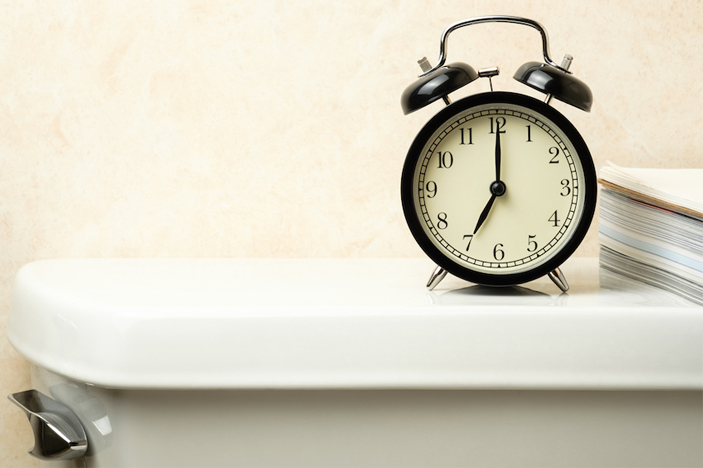
Urinating should be one of your body’s most natural functions, so you’re bound to be frustrated, when you can’t go. Read on to find out what may be causing the trouble.
For most of your adult life, urinating can be straightforward and simple. You feel the need to go, you find a place to go and then you’re done.
So, when you feel like you need to go only to find you can’t, it may cause concern. The inability to empty your bladder completely, called urinary retention, can result from:
- Nerve problems
- Medications
- Weakened bladder muscles
- Obstruction of the urethra
- Urinary tract infections
Nerve problems
Urinary retention can be caused by a problem with the nerves that control your bladder. This can happen as a result of diabetes, stroke, multiple sclerosis, brain or spinal cord infections or injuries, or pelvic injury.
If you’ve recently had surgery with anesthesia and IV fluids, it’s normal to have temporary issues with urinating, as they can impair your nerves. Normal urination should return as soon as the anesthesia wears off.
Medications
Many medications may interfere with bladder function, including antihistamines, antidepressants and medications used to treat muscle spasms.
Weakened bladder muscles
Both men and women may experience a loss of bladder muscle strength with age. Regular Kegel exercises can help strengthen the bladder muscles and resolve bladder issues.
Urinary tract stones
Stones made of urinary crystals can build up in your kidneys, bladder or ureter, obstructing the urethra and causing problems with your ability to urinate.
Urinary tract Infections (UTI)
UTIs can make you feel an urgent need to urinate frequently, only to go a little. Other symptoms include a burning feeling and pain, during urination, and blood in your urine.
For men who can’t urinate
As men age, their prostates continue to grow, which can cause a condition known as benign prostatic hypertrophy (BPH). It’s estimated that more than 70% of men in their 60s have BPH symptoms.
When a man has BPH, it can put pressure on his urethra. As a result, he may experience an inability to urinate, even when he feels the need to go, and he may try to go for several minutes, before actually urinating, or may produce only a weak stream of urination.
UroLift is an innovative, in-office procedure for men with BPH. During the procedure, the urologist implants tiny tines to “lift” or hold enlarged lobes of the prostate to the side (picture a curtain tieback). This relieves the pressure on the urethra and alleviates the problem.
“In the past, we would use electrosurgical current and energy, or we’d use lasers. They would have risks of bleeding and infection,” explains Leo R. Doumanian, MD, a urology specialist at Keck Medicine of USC and associate professor of clinical urology at the Keck School of Medicine of USC. “UroLift cuts down the risks. This increases the outpatient nature of the procedure; it decreases the time spent in the operating room, because you can hopefully use it in the office; and it’s getting great effects with quality-of-life outcomes.”
Other conditions that may prevent a man from urinating, when he feels the need, are bladder stones, prostate cancer and scarring of the urethra. If you are a man who frequently heads to the toilet only to find you cannot urinate, it’s important to see your doctor for a diagnosis and to learn your treatment options.
For women who can’t urinate
A woman may have trouble urinating, because of a condition called cystocele, which is a bulging of the bladder into the vagina. This happens when muscles and supportive tissues in the vagina and surrounding area weaken and stretch, most commonly after pregnancy and childbirth.
A woman also may experience trouble urinating, when her rectum bulges into her vagina, in a condition called rectocele.
Both conditions can be treated with pelvic muscle exercises, a vaginal pessary (a support device that fits into your vagina) or surgery.
Topics
